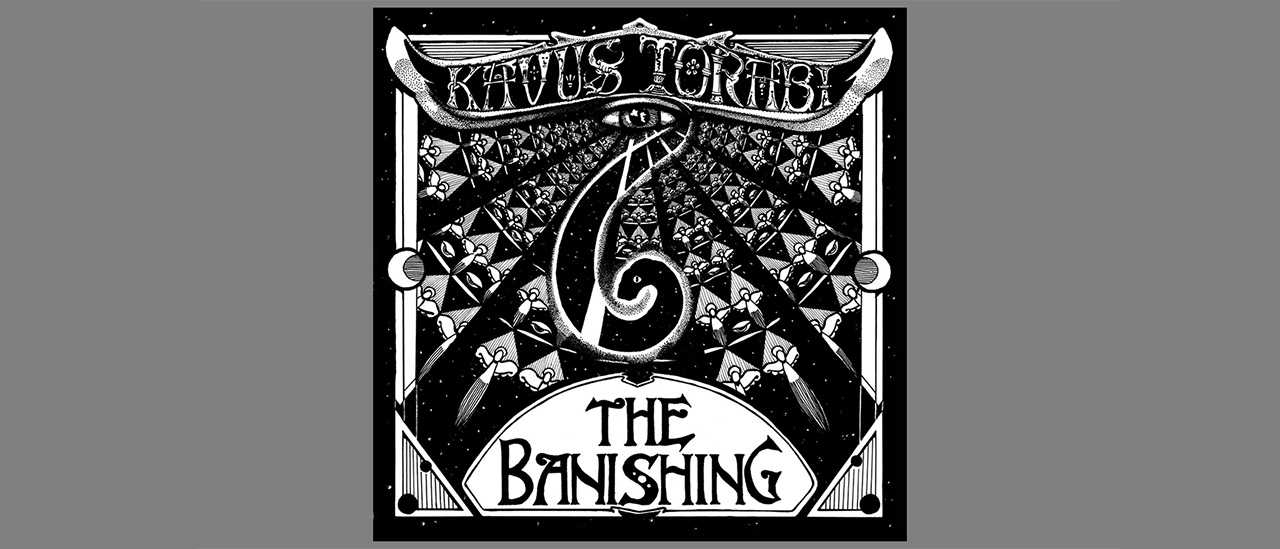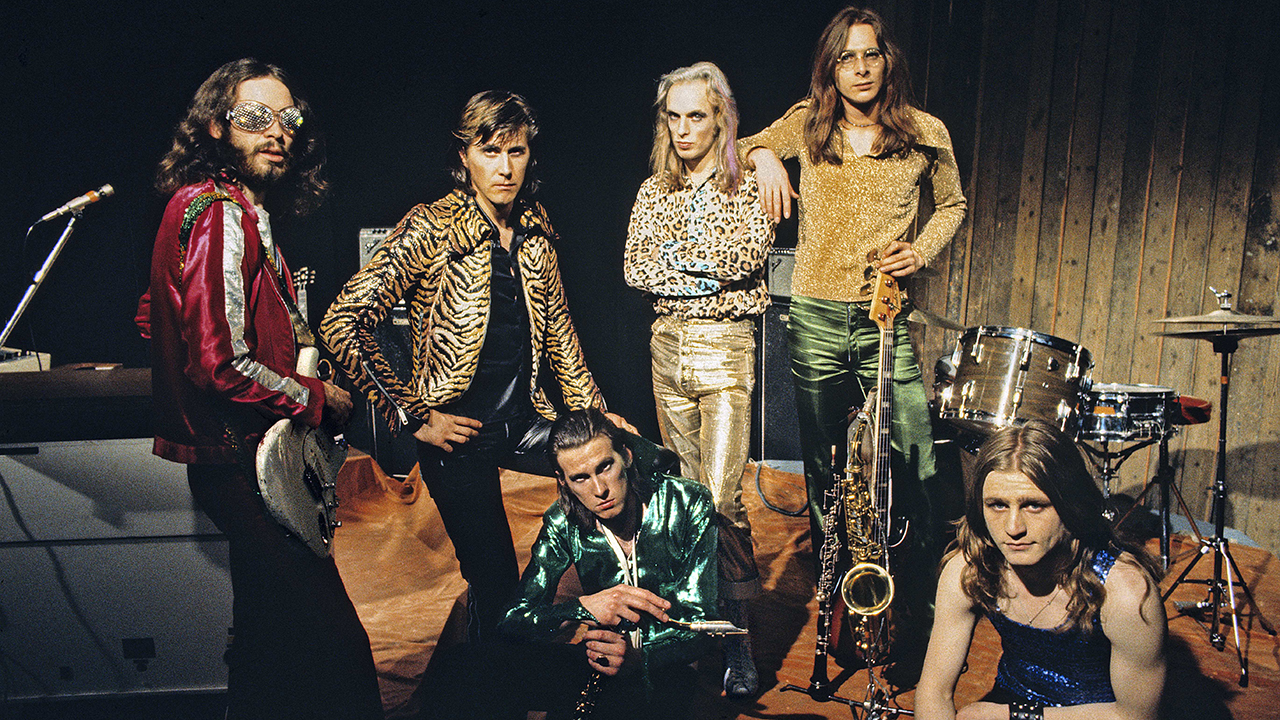You can trust Louder
Since his emergence in the early 90s, Iranian-born, Plymouth-raised multi-instrumentalist Kavus Torabi has remained a singular and distinctive figure in the spheres of psychedelic and progressive music.
Along the way he’s lent his six-string talents to a number of idiosyncratic names including Cardiacs, Guapo and Chrome Hoof, while remaining at the heart of the lysergic funk of The Monsoon Bassoon and third-eye rinsers Knifeworld.
More recently, he’s participated with Mediæval Bæbes and become an integral member of the post-Daevid Allen line-up of Gong, while also starting the unlikely yet successful experimental project The Utopia Strong with former snooker champion Steve Davis and musician Michael J York. And that’s just scratching the surface.
The Banishing, Torabi’s second solo album, is where that deeper scratching reveals more of the man behind the music than any of his previous work.
Recording began in the wake of its predecessor Hip To The Jag in the spring of 2020, but a deterioration in Torabi’s mental health saw him become not only estranged from his family, but also leaving the city that he’d called home for the previous 30 years.
And while the title refers to his move to the more bucolic environs of the West Country, Korabi also sees it in more magical terms as a banishing ritual.
Only the hardest of hearts would remain unmoved by Push The Faders… which rises in subtle intensity while making nods to Frippertronics
For all that, The Banishing isn’t an album that feels sorry for itself. Instead, this is a naked confessional. While the lyrical concerns take a razor-sharp scalpel to cut away the dead flesh of the past, the music blossoms and opens with each return visit.
Sign up below to get the latest from Prog, plus exclusive special offers, direct to your inbox!
The airy and gossamer opener The Horizontal Man picks up where the ethereal Hip To The Jag left off – but proves to be a red herring as the spaghetti western-influenced Snake Humanis comes bounding close behind.
The real balancing act becomes apparent as The Banishing rolls on. Only the hardest of hearts would remain unmoved by Push The Faders. As Torabi admits, ‘When I kicked and screamed like a child, I scared you away... I never knew I’d be this way, I thought that I’d be stronger,’ against a musical backdrop that rises in subtle intensity while making welcome nods to harmonised Frippertronics.
Similarly, The Sweetest Demon finds the singer lamenting, ‘Now you drink alone because it hurts too much,’ juxtaposing his introspection with an insistent and nagging melody.
Torabi’s voice is a plaintive joy throughout, informed as it is by painful experiences while looking ahead. While the bounce of Untethered is informed by resignation, the only way is forward. And that’s exactly where Kavus Torabi is going.
• The Banishing is on sale now via Believers Roast.
Julian Marszalek is the former Reviews Editor of The Blues Magazine. He has written about music for Music365, Yahoo! Music, The Quietus, The Guardian, NME and Shindig! among many others. As the Deputy Online News Editor at Xfm he revealed exclusively that Nick Cave’s second novel was on the way. During his two-decade career, he’s interviewed the likes of Keith Richards, Jimmy Page and Ozzy Osbourne, and has been ranted at by John Lydon. He’s also in the select group of music journalists to have actually got on with Lou Reed. Marszalek taught music journalism at Middlesex University and co-ran the genre-fluid Stow Festival in Walthamstow for six years.




